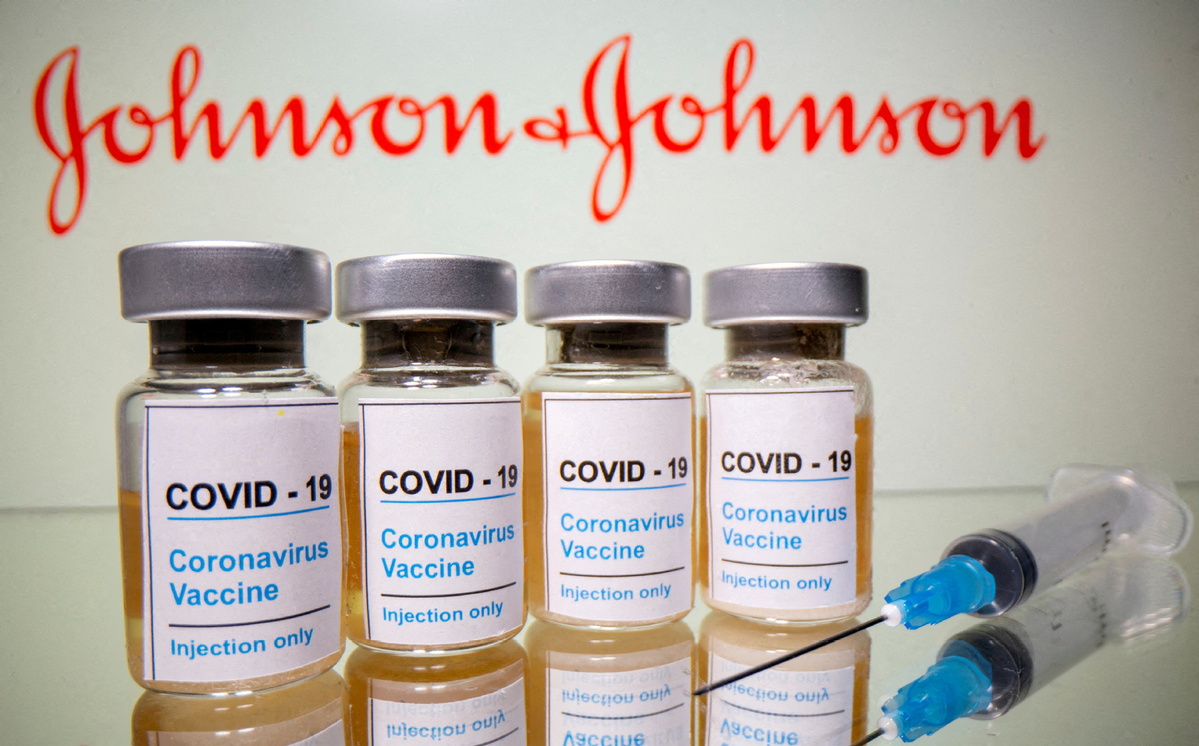FDA restricts J&J COVID vaccine because of blood clot risk
By AI HEPING in New York | chinadaily.com.cn | Updated: 2022-05-06 10:53

The US Food and Drug Administration (FDA) on Thursday put a limit on Johnson & Johnson's COVID-19 vaccine due to a rare but dangerous risk of blood clots.
The FDA is limiting its use to people age 18 and older who can't receive a different vaccine or specifically request J&J's because they wouldn't otherwise get vaccinated.
The FDA said in a statement that the change is being made because of the blood clotting condition called thrombosis with thrombocytopenia syndrome (TTS) that occurs after the vaccine is administered. While the blood clots seen with J&J's shot are rare, the FDA said they are still occurring.
The federal health agency said that it decided to restrict J&J's vaccine after taking another look at data on the risk of life-threatening blood clots within two weeks of vaccination.
It said federal scientists identified 60 cases, including nine that were fatal, as of mid-March. That amounts to one blood clot case per 3.23 million J&J shots administered.
A spokesman for the New Brunswick, New Jersey-based J&J said in a statement: "Data continue to support a favorable benefit-risk profile for the Johnson & Johnson COVID-19 vaccine in adults, when compared with no vaccine."
As of Thursday, more than 18.7 million doses of the J&J vaccine have been administered in the US, according to the Centers for Disease Control and Prevention (CDC). Of those who are considered fully vaccinated, 7.7 percent got the vaccine.
Pfizer and Moderna have provided the vast majority of COVID-19 vaccines in the US. More than 200 million Americans have been fully vaccinated with the two.
In December, the CDC recommended prioritizing Moderna and Pfizer shots over J&J's because of the latter's safety issues.
Pfizer and Modena require two doses, but J&J's vaccine is a single dose. But follow-up studies have consistently shown lower effectiveness for J&J's vaccine.
Despite the restriction, FDA's vaccine chief Dr Peter Marks said J&J's vaccine "still has a role in the current pandemic response in the United States and across the global community".
COVID-19 causes deadly blood clots, too. But the vaccine-linked kind is different, believed to form because of a rogue immune reaction to the J&J and AstraZeneca vaccines because of how they are made.
Symptoms of the unusual clots include severe headaches a week or two after the J&J vaccination — not right away — as well as abdominal pain and nausea.
J&J announced last month that it didn't expect a profit from the vaccine this year and was suspending sales projections.
























